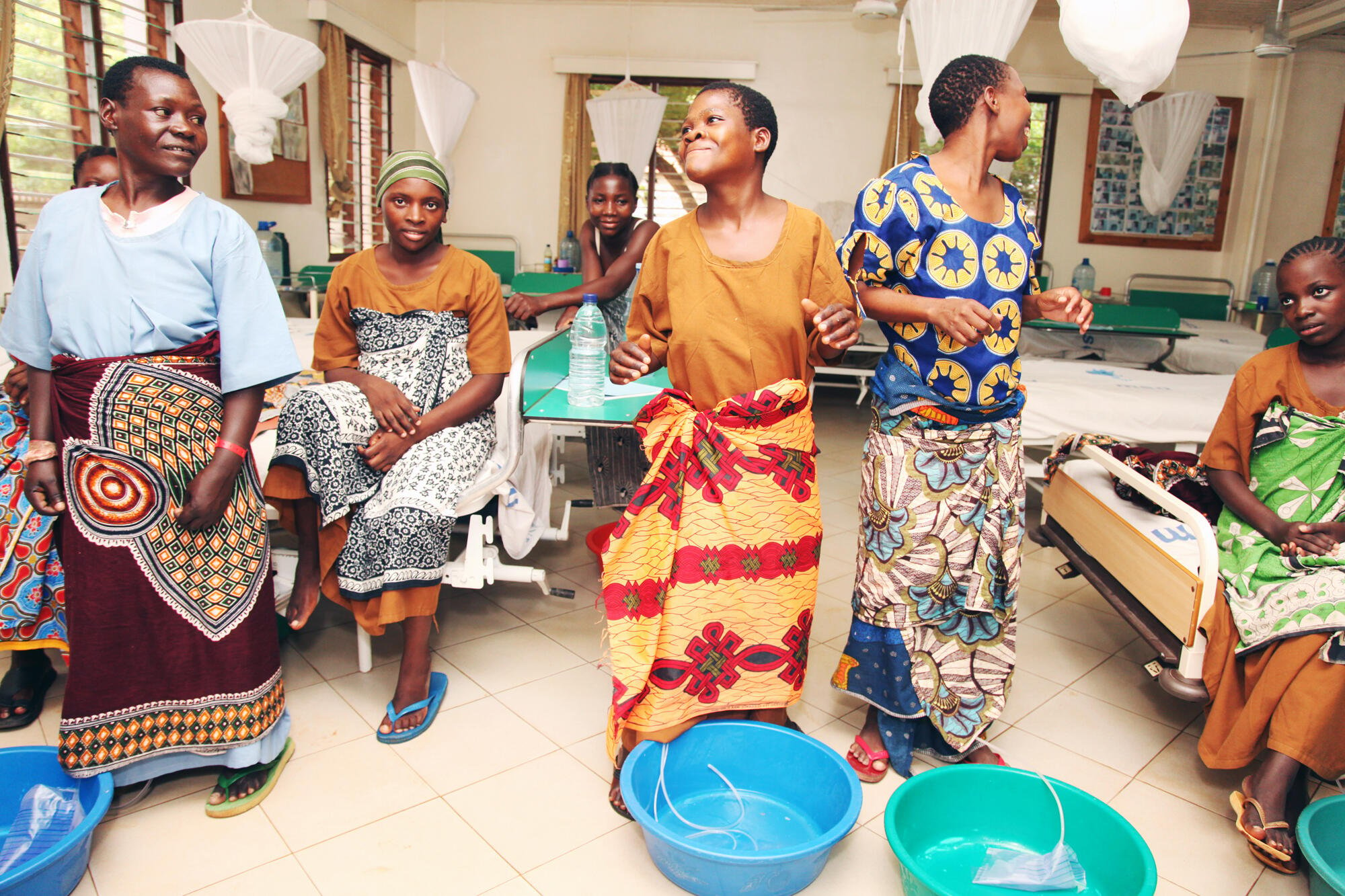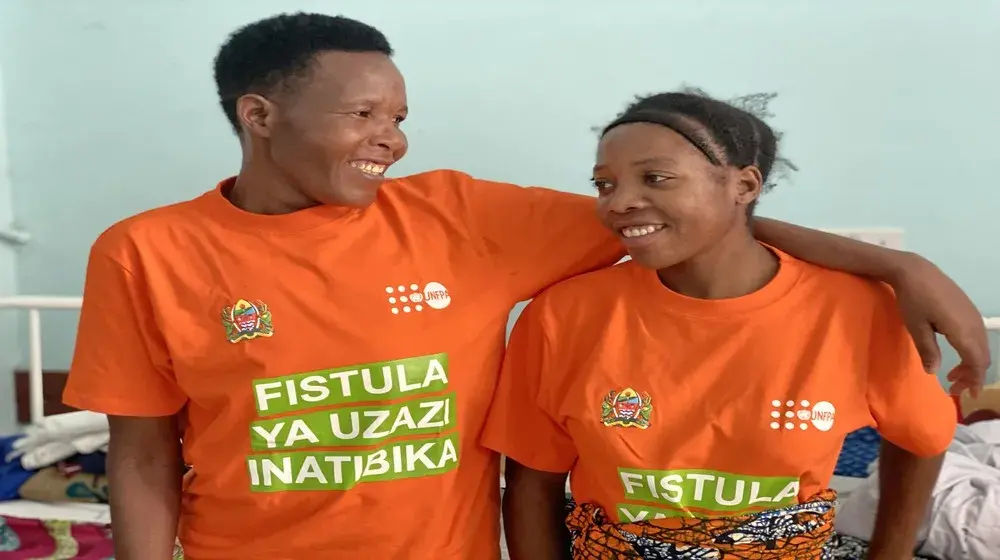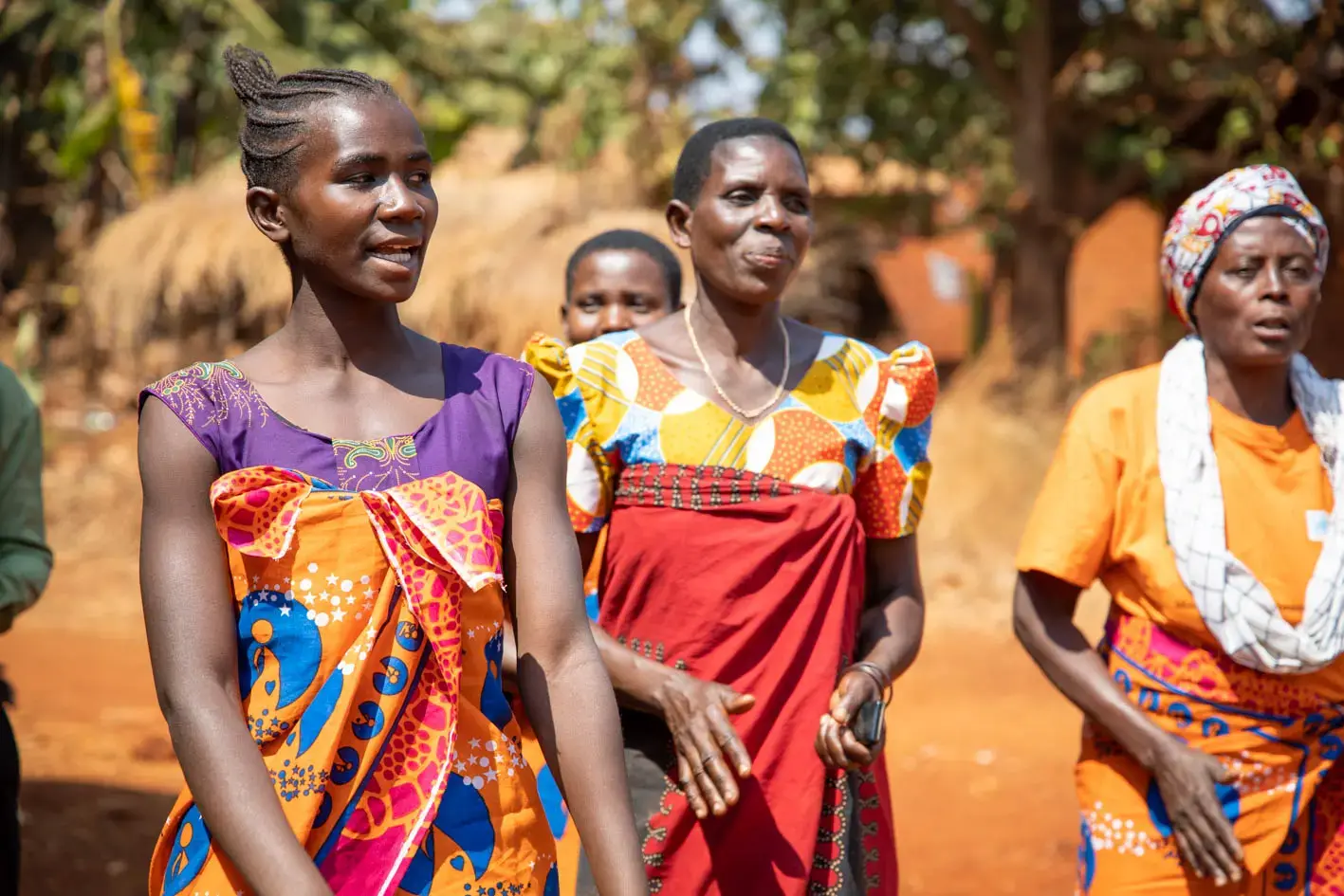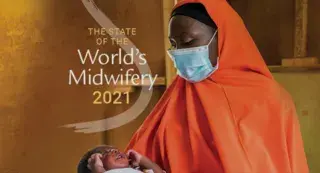On 23 May 2017, the fourth International Day to End Obstetric Fistula, UNFPA – in collaboration with the Government of the United Republic of Tanzania and implementing partners Comprehensive Community Based Rehabilitation in Tanzania (CCBRT) and Amref Health Africa – are joining forces with the international community to step up the fight to end obstetric fistula in Tanzania.
The theme of this year's celebrations is: “Hope, Healing and Dignity for All”. Women living with obstetric fistula – a condition caused by prolonged or obstructed labour without timely medical intervention – are left incontinent; uncontrollably leaking urine, faeces, or both. They are subject to stigma and discrimination in their communities, and face isolation and a lack of support. It is estimated that 3,000 women develop obstetric fistula in Tanzania every year, leading to a significant backlog in the number of women requiring treatment. These women are some of the poorest and most marginalized in society.
The Ministry of Health Community Development, Gender, Elderly and Children, UNFPA, CCBRT and Amref Health Africa are using the international celebrations as an opportunity to reflect on the progress made in Tanzania to eliminate obstetric fistula, while looking to the future to ensure that ending obstetric fistula is a high priority on the national agenda.
CCBRT and Amref tackle the condition in 14 health facilities across Tanzania, and last year provided life-changing surgery to 1,356 women living with obstetric fistula. By providing free treatment, accommodation, meals and transport (with funds sent via M-PESA) to obstetric fistula patients, Amref and CCBRT are breaking down the barriers that women with fistula – many of whom come from poorer, hard-to-reach communities – face in accessing treatment. Globally, UNFPA supported the repairs of 15,000 fistulae in 2016 alone.
Timely, quality maternal care is key to preventing obstetric fistula from occurring, and the three participating organizations support the Government’s One Plan II to reduce maternal mortality and morbidity. At present, the Ministry of Health is in the process of conducting research into the incidence of fistula in Tanzania, and is working together with UNFPA, CCBBRT and Amref Health Africa on a national strategy to set goals and standards for the eradication of fistula in the country.
Collaboration is key to efforts to end the scourge of fistula. Together, the Ministry of Health Community Development, Gender, Elderly and Children, UNFPA, CCBRT and Amref Health Africa are mobilizing the support and commitment needed to transform the lives of women and girls living with fistula, promote hope and healing, and rid Tanzania of fistula for good.
Amref Health Africa Tanzania Country Director, Dr Florence Temu, said: “Amref Health Africa is concerned about the devastating effects of fistula on women, including the death of their babies, uncertainty about having more children, divorce, depression, stigma, social isolation and deepening poverty. Amref Health Africa supports global and national efforts to end fistula, and we will continue to work to restore smiles to the faces of fistula survivors.”
Erwin Telemans, CEO, CCBRT added: “Fistula is a preventable condition that we must tackle together. In 2017, no woman should have to suffer constant leaking, grief from the loss of her child, depression and social isolation needlessly, and it is our mission to end this situation for good. We need to address the backlog of women suffering in silence in their communities across Tanzania, with effective detection, referral and awareness raising, advocate for a national strategy and strengthen prevention by training clinicians in emergency obstetric skills. I am proud to join hands with our partners at UNFPA, the Ministry of Health and Amref and call for an end to fistula in Tanzania, and I ask others to support us in this incredibly important work.”





